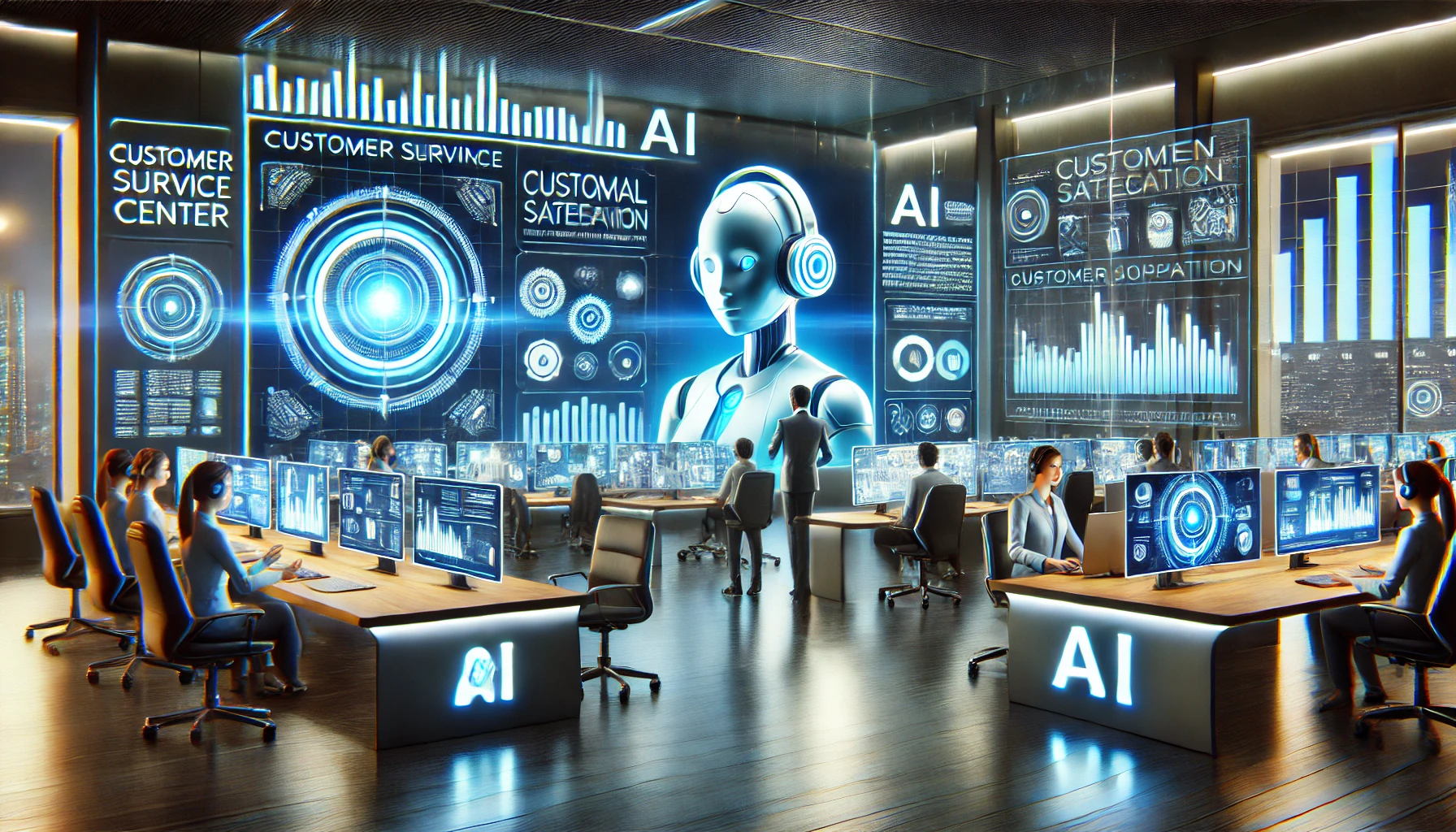Customer service is one of the most crucial aspects of any business. In today’s fast-paced digital world, consumers expect quick, efficient, and personalized support. Artificial intelligence (AI) is transforming the way companies interact with customers by automating responses, analyzing data, and improving overall service quality.
AI-powered solutions like chatbots, virtual assistants, and sentiment analysis tools are helping businesses provide 24/7 support, reduce response times, and enhance customer satisfaction. In this article, we’ll explore how AI is revolutionizing customer service and how businesses can leverage these innovations to stay competitive.
The Rise of AI in Customer Service
AI has evolved rapidly in recent years, enabling businesses to handle customer interactions more efficiently. Some of the key drivers behind the adoption of AI in customer service include:
- Increased demand for instant support – Customers expect quick responses, and AI enables businesses to provide immediate assistance.
- Cost savings – AI reduces the need for large customer support teams by automating repetitive tasks.
- Improved personalization – AI analyzes customer data to deliver tailored recommendations and responses.
- Scalability – AI allows businesses to handle a high volume of customer queries without adding additional human resources.
Key AI Technologies Transforming Customer Service
1. AI-Powered Chatbots
AI chatbots have become a game-changer in customer service. These intelligent bots can handle frequently asked questions, provide troubleshooting assistance, and even process transactions.
Benefits of AI chatbots:
- Provide instant responses to customer inquiries
- Reduce wait times and improve efficiency
- Operate 24/7 without human intervention
- Learn from interactions to improve over time
Companies like Sephora, H&M, and Bank of America use AI chatbots to assist customers with product recommendations, order tracking, and banking inquiries.
2. Virtual Assistants
AI-powered virtual assistants, such as Amazon Alexa, Apple Siri, and Google Assistant, are enhancing customer interactions by providing voice-activated support. Businesses integrate these assistants into their platforms to offer hands-free customer service.
For example, Domino’s Pizza allows customers to place orders using AI-driven voice assistants, streamlining the ordering process.
3. AI-Powered Email and Messaging Automation
AI tools like Zendesk AI and Freshdesk AI help businesses automate email responses and categorize support tickets based on urgency and sentiment. These tools use Natural Language Processing (NLP) to understand customer requests and generate accurate responses.
How AI improves email and messaging:
- Prioritizes urgent issues
- Automates responses to common inquiries
- Reduces human workload, allowing agents to focus on complex cases
4. AI-Based Sentiment Analysis
Understanding customer emotions is essential for providing excellent service. AI-powered sentiment analysis tools analyze customer feedback, reviews, and social media comments to determine whether sentiments are positive, neutral, or negative.
Key sentiment analysis tools:
- MonkeyLearn – Analyzes customer sentiment in real time
- Lexalytics – Provides insights from social media and customer reviews
- IBM Watson Tone Analyzer – Detects emotions in text-based conversations
Sentiment analysis helps businesses identify trends, address negative feedback, and improve their services proactively.
5. AI-Driven Call Centers
AI is transforming traditional call centers by improving efficiency and customer satisfaction. AI-powered voice recognition software can analyze customer speech patterns, detect frustration, and suggest real-time solutions to human agents.
AI applications in call centers:
- Automated call routing – AI directs calls to the right department based on customer needs.
- Speech analytics – AI analyzes conversations to identify areas for improvement.
- Real-time agent assistance – AI provides customer support representatives with instant insights and recommendations.
Companies like Amazon, Google, and Microsoft offer AI-driven contact center solutions that enhance agent productivity and customer experience.
The Benefits of AI in Customer Service
1. Faster Response Times
AI-powered chatbots and automation tools provide instant answers, reducing customer wait times and increasing satisfaction.
2. 24/7 Availability
Unlike human agents, AI operates around the clock, ensuring customers receive support anytime, anywhere.
3. Cost Savings for Businesses
Automating repetitive tasks reduces the need for large customer support teams, lowering operational costs.
4. Improved Accuracy and Consistency
AI eliminates human errors and ensures that customers receive accurate and consistent responses.
5. Personalized Customer Experiences
AI analyzes customer data and past interactions to provide tailored recommendations and solutions.
Challenges of AI in Customer Service
Despite its advantages, AI in customer service also presents challenges that businesses must address:
- Lack of human touch – Some customers prefer human interaction over AI-driven responses.
- Understanding complex queries – AI chatbots may struggle with highly specific or nuanced questions.
- Data privacy concerns – Businesses must ensure customer data is handled securely.
To overcome these challenges, companies should adopt a hybrid approach, combining AI automation with human support to deliver the best customer experience.
The Future of AI in Customer Service
AI will continue to evolve, offering even more advanced capabilities for customer service. Future trends include:
- AI-powered voice assistants becoming more conversational
- Predictive AI analyzing customer behavior to anticipate needs
- More human-like AI interactions using deep learning techniques
As AI technology advances, businesses that leverage AI-driven customer service solutions will gain a competitive edge, enhancing efficiency and customer satisfaction.
AI is not just a trend—it is the future of customer service. Companies that adopt AI-powered solutions will improve customer experiences, streamline operations, and position themselves as industry leaders.
